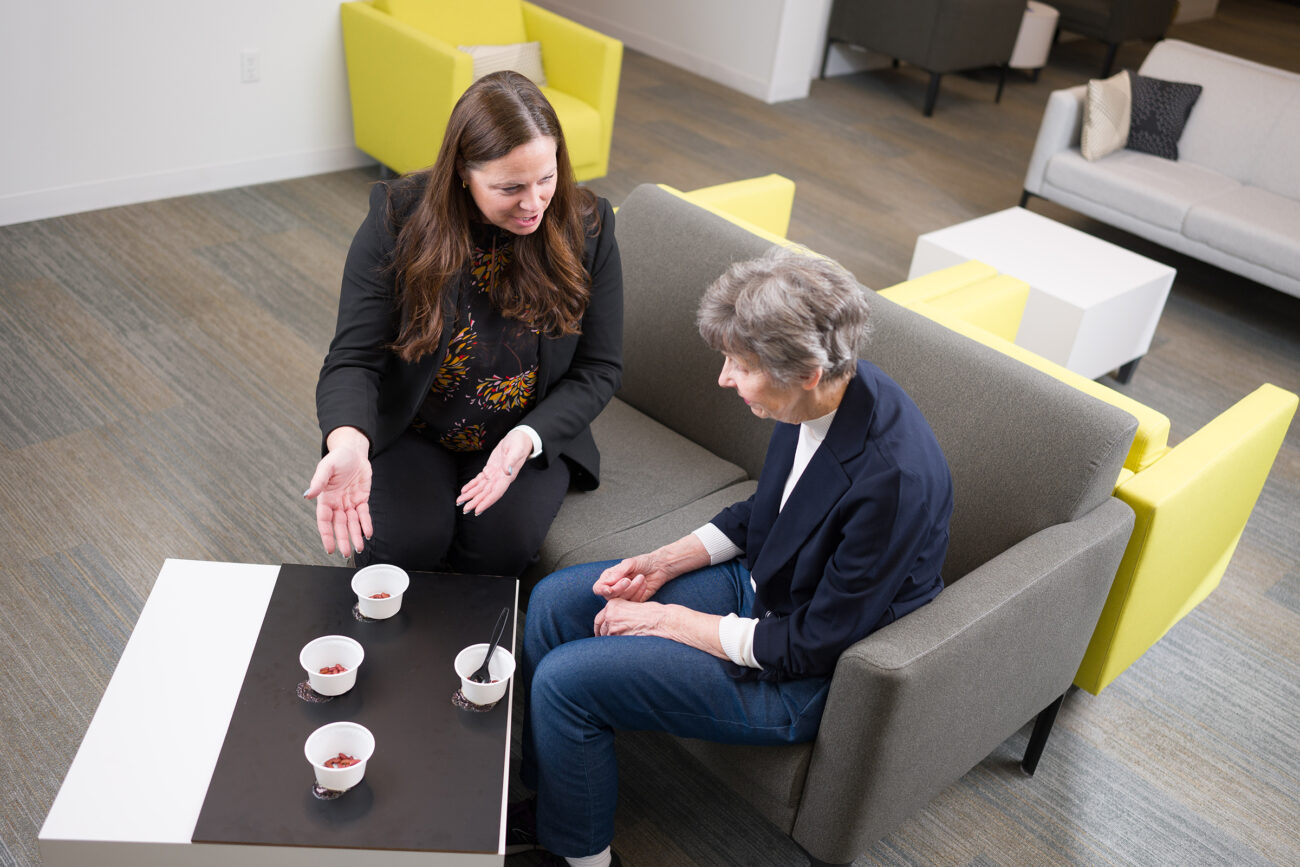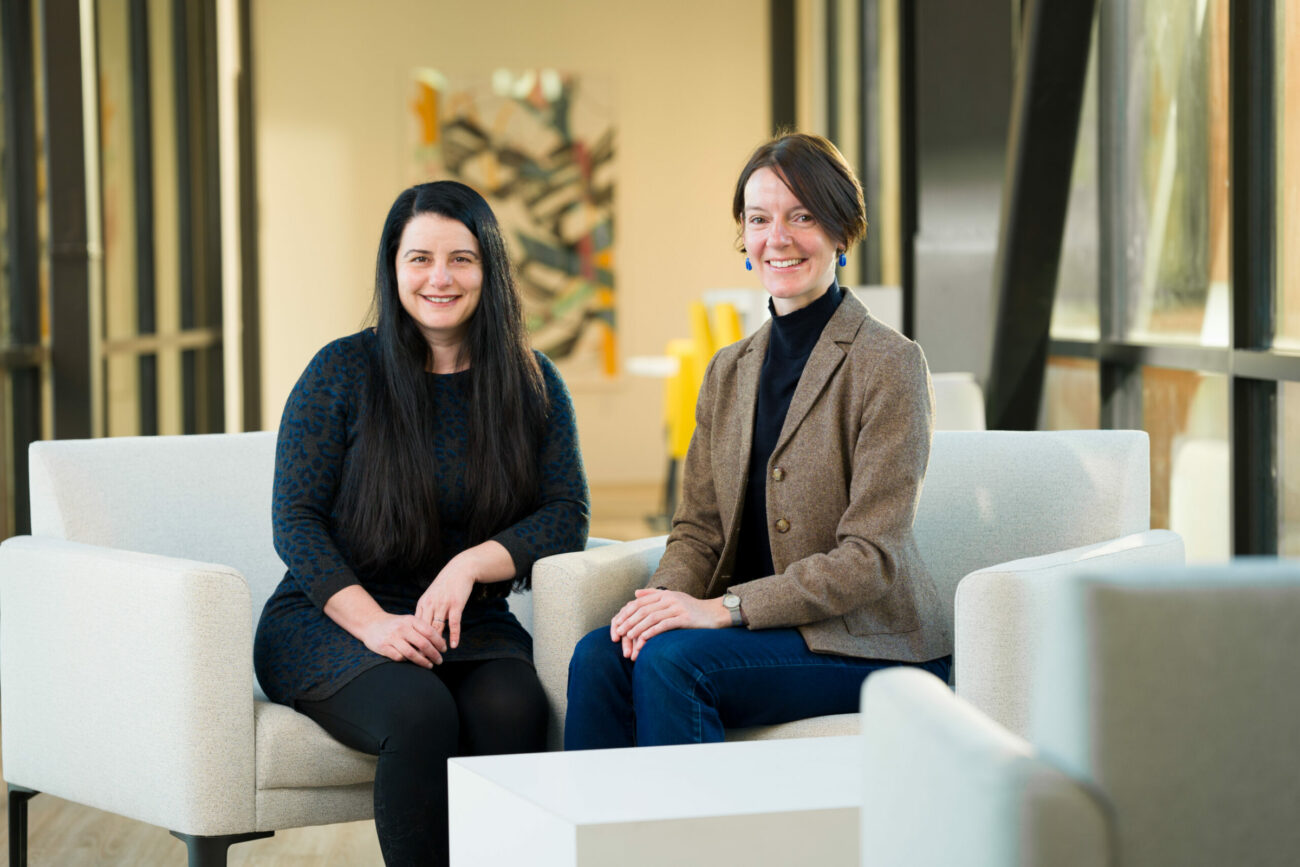USU CENTER HELPING TO DEVELOP EARLY DEMENTIA SCREENING TEST

By Anna Sadler ’20
Funded by an appropriation from the State Legislature in 2022, the Alzheimer’s Disease and Dementia Research Center (ADRC) at Utah State University is increasing research across the state to find ways to better understand Alzheimer’s and dementia, as well as support people living with those diseases.
Recently, the ADRC partnered with Neurosessments, a Los Angeles-based company focused on bringing science to senior care, to improve early dementia detection with a simple, noninvasive motor test.
Currently some older people avoid cognitive testing with their doctor because they think the tests will be challenging, and they feel anxious about it. The motor-based test is designed to be more like a game. Individuals use a spoon with their non-dominant hand to scoop up dry kidney beans into cups in specific sequences.
“We’re testing the brain’s ability to improve on the task,” says Elizabeth Fauth, USU’s ADRC director. “As they move the beans around, their brain is trying to learn strategies to move faster and to be more accurate. We now know that people who don’t improve on [the test] likely have some underlying impairment.”
In collaboration with Sydney Schaefer, an associate professor in Arizona State’s School of Biological Health Systems, and Jill Love, a geriatric care manager and co-owner of Neurosessments, the test has already been shown to detect neuropathology and neurodegeneration in older adults who exhibit little to no symptoms of dementia.
In 2023, Neurosessments was awarded a Small Business Innovation Research grant of $370,000 from the National Institutes of Health. The award enabled the team to develop and test the reliability of a clinical version of the assessment, referred to as the Quick Behavioral Exam to Advance Neuropsychological Screening (qBEANS) which can be administered by a nurse or medical assistant during a routine doctor visit.
Fauth is working with students at USU, as well as older adults in the community, to test qBEANS in a mock clinical setting.
With only 16% of older adults in the U.S. currently receiving regular cognitive testing, the research team is hoping to provide medical practitioners across the country with a new tool that helps people feel comfortable doing early assessment.
“Detecting that a person may be experiencing cognitive impairment before they are noticeably impaired gives people a better chance to get into clinical trials and more time to prepare finances, make care plans, and so on,” Fauth says.
If the assessment is adopted into primary care standard practices, it will assist physicians in determining older patients’ cognitive health. Currently, fewer than half of primary care providers (48%) offer cognitive testing to their patients. Instead, most providers conduct their own screening by observing the patient and using their clinical judgement or a patient’s self-assessment. Now, using the results of the screening, physicians will be better equipped to determine whether a patient should be referred to a specialist.
“It has taken years to develop qBEANS in the laboratory,” Schaefer says. “We’re ready to gather the evidence needed to help integrate it into a marketable product for use in primary-care and other settings.”





